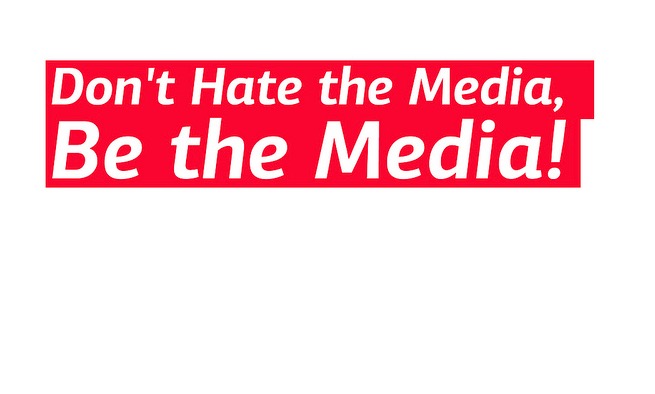Recently, I had the honor of speaking with Sut Jhally, who is a Professor of Communications at The University of Massachusetts at Amherst. He is also the founder and Executive Director of the Media Education Foundation. He has been involved in the production of more than 50 films, including Advertising and the End of the World, Hijacking Catastrophe: 9/11, Fear & the Selling of American Empire, and Peace, Propaganda & the Promised Land: U.S. Media and the Israeli/Palestinian Conflict.
During our conversation over Google Chat, which is part of our Generation Justice Training Curriculum, I learned about the importance of media literacy. A fellow GJ member asked about the appropriate age to begin teaching children media literacy. Professor Jhally had us think about the question from an advertiser’s perspective. He told us that advertisers consider babies, as young as eight months old, consumers. Advertisers are very good at making babies and children listen to what they have to say. This is why media literacy is important at any age. We need to be fully aware of the media that we are consuming.
We also talked about the importance of checking ourselves: personal media literacy. We may think that we understand the media when, really, we do not. This part of our conversation really hit home for me. Before I came to Generation Justice, I thought I knew all there was about understanding and deciphering media. But my knowledge was actually severely lacking.
It was not until I was able to see media from a different, more informed, perspective that I realized I still had so much to learn. Professor Jhally made reference to the fact that there is no way that a fish could have discovered water. Well, the same goes for media. When you are completely surrounded by something, sometimes it can be hard to realize that it is there. We are completely surrounded by media and unless we are able to take a step back and to analyze our understanding, from an outside perspective, it can be difficult to test our own literacy.
We went on to discuss social media, which was probably my favorite part of the conversation. I consider myself a social media activist, and I believe in the power within the intersection of social movements and social media. We were lead into it by a question asked about Professor Jhally’s work on the Israeli/Palestinian conflict. He told us that social media has really shifted the perception of young people when it comes to the conflict. In other words, social media has made an impact on how young people feel about the tragedies that we have seen in Palestine.
He also mentioned that there is no longer a technology barrier that leaves the production of media only to those that can afford it. Nowadays, anybody can be a media maker. As we saw in Ferguson when Mike Brown was killed by police, community activists took it upon themselves to create a narrative and they notified the world through the use of Twitter. This was incredibly effective. People live-tweet events happening all over the world, and news travels in seconds. If you have a phone with a camera, or even just access to the internet, you can be a media maker.
I am thankful that Sut Jhally took the time to speak with us, and I look forward to learning more about his work. I am also humbled by the advice that he had to offer to young journalists of color. Specifically, those of us who chose to pursue social justice journalism. He expressed the importance of always being true to ourselves and what we believe in. This meant a lot because I don’t believe in sacrificing or compromising my own values and beliefs in order to report on a story. Even though I will always be working within the corporate power structure of mainstream media, it is inspiring to know that there are people who support those of us who chose to combine justice and journalism. I will never compromise my story, therefore I refuse to compromise anybody else’s either. Thank you, Sut Jhally. You are an inspiration.


Leave a Reply